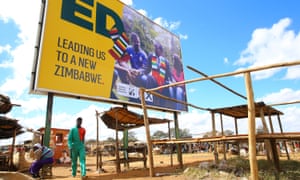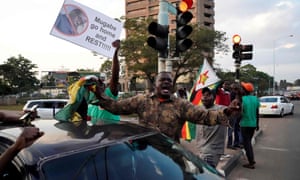
History is big business in Zimbabwe. The struggle over the past is really the struggle to define the present and future. As the country prepares for a general election, the shadows of Big Men from Cecil John Rhodes to Emmerson Mnangagwa obscure the histories of ordinary people.
No novelist has dealt more extensively with Zimbabwe’s history than Yvonne Vera, who died aged 40 in 2005. In her fifth and final novel, The Stone Virgins (2002), Vera writes of two sisters who suffer and survive the violences of Gukurahundi, the 1980s massacres of more than 20,000 Ndebele “dissidents” by the Korean-trained Fifth Brigade of the Zimbabwean armed forces. Dense and opaque at times, Vera’s interrogation of the suppression of memory and language in “the years of deafness and struggle” invites us to explore how we listen to the silences that continue to echo in the aftermath of Zimbabwe’s violent past and present.
Novuyo Rosa Tshuma’s epic satire House of Stone (2018) is driven by one Zamani’s almost pathological desire to replace the missing son of the Mlambo family. In Tshuma’s beautiful interweaving of personal and national history, we learn of successive generations burdened by sins of their fathers. In Zamani’s desperation for family, rooting and history, it is not hard to miss Zimbabwe’s own constant search for “Fathers of the Nation”.
Tsitsi Dangarembga stepped into this national arena with his 1988 novel Nervous Conditions, which opens with the memorable line: “I was not sorry when my brother died.” For 13-year-old Tambudzai, her brother’s death offers the promise of education – an escape from her family’s poverty in a 1960s Rhodesia where an all-out liberation war is about to take place. The book, whose title is taken from Jean‑Paul Sartre’s introduction to Frantz Fanon’s The Wretched of the Earth, highlights the ways in which fiction transformed our view of the colonial subject as necessarily male. It forced us to expand our vision of liberation beyond the masculinist tradition.

Another interrogation of Zimbabwe’s national self-making is Brian Raftopoulos and Alois Mlambo’s Becoming Zimbabwe: A History from the Pre-colonial Period to 2008. The editors aim to upend the notion of an “unquestioned national identity” through the first comprehensive history of Zimbabwe, spanning the years from 850 to 2008, in order to track who and what “Zimbabwean-ness” has and hasn’t meant over this broad historical period.
• Panashe Chigumadzi’s These Bones Will Rise Again is published by Indigo.


